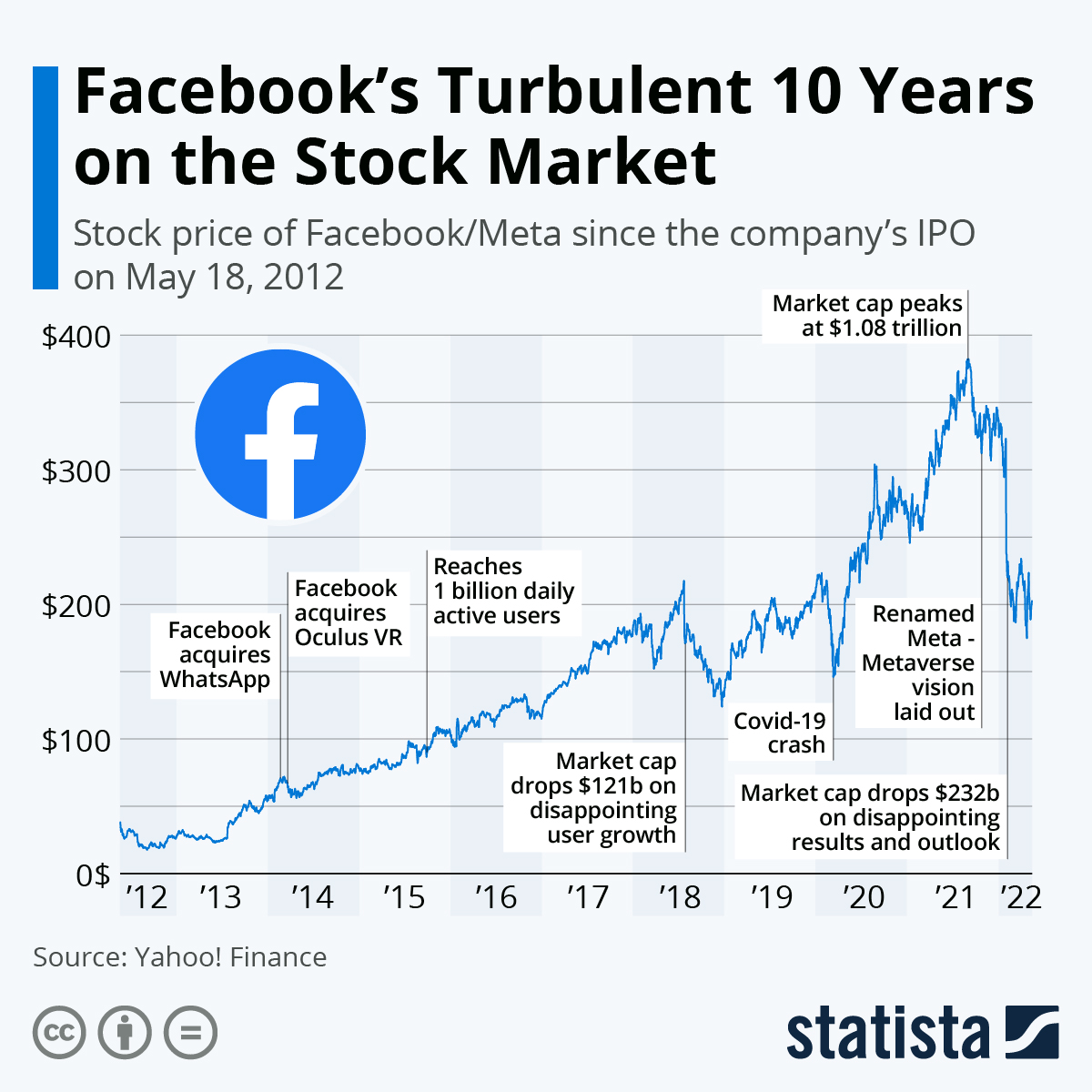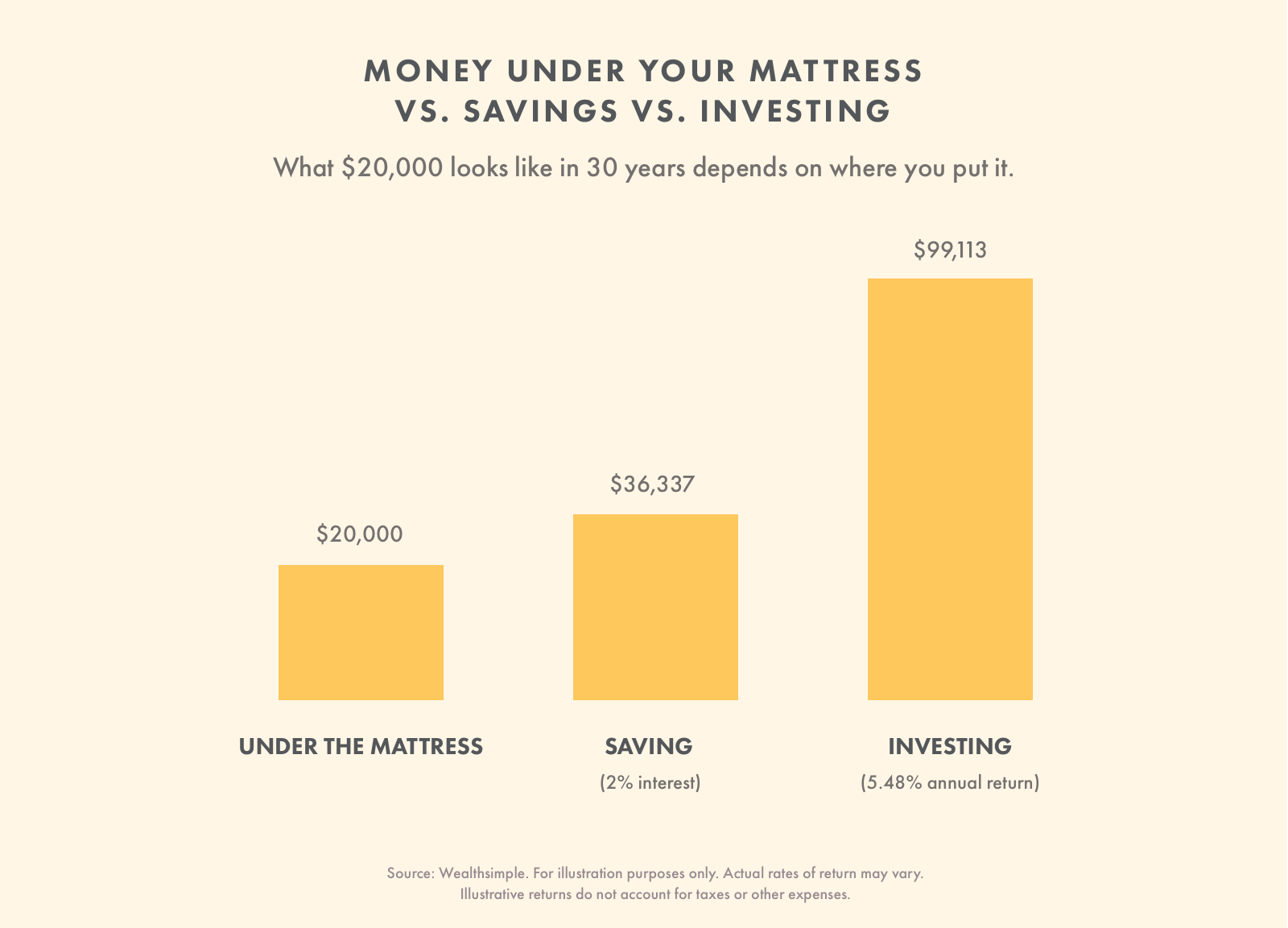
Economic bubbles happen when the price for an asset or product goes above its fundamental value. These bubbles can be caused by many factors, such a change in investor behaviour or a new technology innovation.
It is not uncommon to identify economic bubbles "after the event." They are primarily caused by a change in the market, but there are many other financial factors at play. Some of them include an ultra-easy money policy and low rates.
In order to understand the reason why these bubbles occur, economists created a list of guidelines which they use in order to determine whether or no an investment constitutes a bubble. These guidelines can help investors to avoid investing in assets that may be a bubble.
The first step to determining if or not an asset is a "bubble" is to look at the increase in value over time. These details can be obtained by reviewing the financial records and past performance of the company.

Dividends can be used as a way to estimate the value of assets. The dividend stream can provide an indication of the company's stability and if the asset will continue to appreciate in value.
Stock bubbles
Stocks make up a big part of your portfolio. They represent a lot of wealth in the majority of economies. When a share becomes overvalued, investing in it can be risky. It is important to keep track of the performance of a company and identify any early signs that a bubble is forming before it reaches its peak.
Dot-com bubbles are well-known examples of stock bubbles. It was fuelled both by cheap money and new technologies like the internet.
In history, there have been many other major stock booms. The South Sea Bubble of the 1600s was one. These bubbles both involved investing in commodities that were wildly overpriced. This led to massive losses for investors.
Stock bubbles occur when investors buy shares of a business in the hope of its increasing value. This is done by way of an initial publicly offered, or IPO.

Speculative investors, who seek to profit from a rising stock value, are the main drivers of stock prices in a stock bubble. They are often not rational and act without regard to their own long-term financial health or that of the company.
A stock bubble is one of the most significant types of economic bubbles, and it can have a devastating impact on a nation's economy. A stock bubble can cause economic damage or even lead to the loss of jobs. To make an informed choice about whether or to not invest in a particular asset, you need to know the signs of a stock market bubble.
FAQ
How does inflation affect the stock market?
Inflation is a factor that affects the stock market. Investors need to pay less annually for goods and services. As prices rise, stocks fall. You should buy shares whenever they are cheap.
How do I invest in the stock market?
Brokers allow you to buy or sell securities. Brokers can buy or sell securities on your behalf. Trades of securities are subject to brokerage commissions.
Banks charge lower fees for brokers than they do for banks. Banks are often able to offer better rates as they don't make a profit selling securities.
An account must be opened with a broker or bank if you plan to invest in stock.
If you hire a broker, they will inform you about the costs of buying or selling securities. This fee is based upon the size of each transaction.
Your broker should be able to answer these questions:
-
Minimum amount required to open a trading account
-
whether there are additional charges if you close your position before expiration
-
What happens when you lose more $5,000 in a day?
-
How long can positions be held without tax?
-
How you can borrow against a portfolio
-
whether you can transfer funds between accounts
-
how long it takes to settle transactions
-
The best way buy or sell securities
-
How to avoid fraud
-
How to get help for those who need it
-
If you are able to stop trading at any moment
-
whether you have to report trades to the government
-
whether you need to file reports with the SEC
-
Do you have to keep records about your transactions?
-
If you need to register with SEC
-
What is registration?
-
How does it impact me?
-
Who should be registered?
-
What are the requirements to register?
What is the difference?
Brokers are specialists in the sale and purchase of stocks and other securities for individuals and companies. They handle all paperwork.
Financial advisors can help you make informed decisions about your personal finances. Financial advisors use their knowledge to help clients plan and prepare for financial emergencies and reach their financial goals.
Banks, insurers and other institutions can employ financial advisors. Or they may work independently as fee-only professionals.
If you want to start a career in the financial services industry, you should consider taking classes in finance, accounting, and marketing. Also, you'll need to learn about different types of investments.
Why is a stock called security.
Security refers to an investment instrument whose price is dependent on another company. It may be issued by a corporation (e.g., shares), government (e.g., bonds), or other entity (e.g., preferred stocks). The issuer promises to pay dividends to shareholders, repay debt obligations to creditors, or return capital to investors if the underlying asset declines in value.
What is security at the stock market and what does it mean?
Security is an asset that generates income. Most security comes in the form of shares in companies.
One company might issue different types, such as bonds, preferred shares, and common stocks.
The earnings per shares (EPS) or dividends paid by a company affect the value of a stock.
You own a part of the company when you purchase a share. This gives you a claim on future profits. If the company pays a payout, you get money from them.
Your shares may be sold at anytime.
What is the difference between stock market and securities market?
The entire list of companies listed on a stock exchange to trade shares is known as the securities market. This includes stocks, options, futures, and other financial instruments. Stock markets are typically divided into primary and secondary categories. Stock markets are divided into two categories: primary and secondary. Secondary stock markets are smaller exchanges where investors trade privately. These include OTC Bulletin Board Over-the-Counter (Pink Sheets) and Nasdaq ShortCap Market.
Stock markets are important for their ability to allow individuals to purchase and sell shares of businesses. The price at which shares are traded determines their value. A company issues new shares to the public whenever it goes public. These shares are issued to investors who receive dividends. Dividends are payments that a corporation makes to shareholders.
Stock markets provide buyers and sellers with a platform, as well as being a means of corporate governance. Shareholders elect boards of directors that oversee management. Managers are expected to follow ethical business practices by boards. If a board fails to perform this function, the government may step in and replace the board.
How do I choose a good investment company?
Look for one that charges competitive fees, offers high-quality management and has a diverse portfolio. Commonly, fees are charged depending on the security that you hold in your account. Some companies don't charge fees to hold cash, while others charge a flat annual fee regardless of the amount that you deposit. Others charge a percentage on your total assets.
Also, find out about their past performance records. If a company has a poor track record, it may not be the right fit for your needs. You want to avoid companies with low net asset value (NAV) and those with very volatile NAVs.
Finally, it is important to review their investment philosophy. Investment companies should be prepared to take on more risk in order to earn higher returns. If they are unwilling to do so, then they may not be able to meet your expectations.
Statistics
- Our focus on Main Street investors reflects the fact that American households own $38 trillion worth of equities, more than 59 percent of the U.S. equity market either directly or indirectly through mutual funds, retirement accounts, and other investments. (sec.gov)
- US resident who opens a new IBKR Pro individual or joint account receives a 0.25% rate reduction on margin loans. (nerdwallet.com)
- "If all of your money's in one stock, you could potentially lose 50% of it overnight," Moore says. (nerdwallet.com)
- For instance, an individual or entity that owns 100,000 shares of a company with one million outstanding shares would have a 10% ownership stake. (investopedia.com)
External Links
How To
How to create a trading plan
A trading plan helps you manage your money effectively. It will help you determine how much money is available and your goals.
Before creating a trading plan, it is important to consider your goals. You may wish to save money, earn interest, or spend less. If you're saving money, you might decide to invest in shares or bonds. If you're earning interest, you could put some into a savings account or buy a house. Perhaps you would like to travel or buy something nicer if you have less money.
Once you decide what you want to do, you'll need a starting point. It depends on where you live, and whether or not you have debts. It is also important to calculate how much you earn each week (or month). Income is the sum of all your earnings after taxes.
Next, you will need to have enough money saved to pay for your expenses. These expenses include rent, food, travel, bills and any other costs you may have to pay. Your monthly spending includes all these items.
You will need to calculate how much money you have left at the end each month. This is your net available income.
You're now able to determine how to spend your money the most efficiently.
To get started, you can download one on the internet. Ask an investor to teach you how to create one.
Here's an example of a simple Excel spreadsheet that you can open in Microsoft Excel.
This will show all of your income and expenses so far. This includes your current bank balance, as well an investment portfolio.
And here's a second example. This was designed by a financial professional.
It will let you know how to calculate how much risk to take.
Don't try and predict the future. Instead, you should be focusing on how to use your money today.